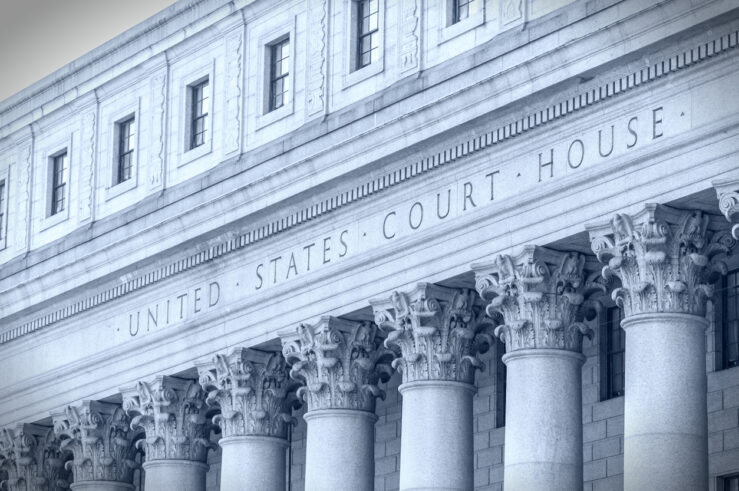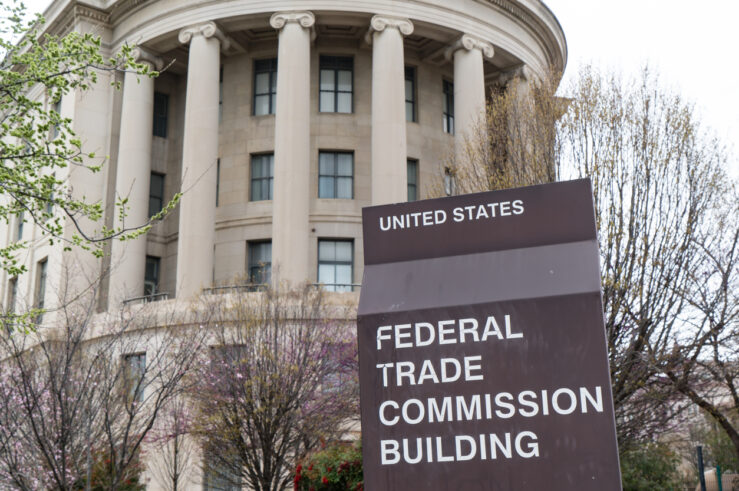Showing results for: “Valid C1000-170 Study Materials 🕗 C1000-170 Latest Exam Answers 🏮 Trusted C1000-170 Exam Resource 🦍 Search on 【 www.pdfvce.com 】 for 【 C1000-170 】 to obtain exam materials for free download 🐀Valid C1000-170 Dumps Demo”
National Petroleum Refiners v FTC: A Tale of Two Opinions
In 1972, a case came before Aubrey E. Robinson, Jr., a judge on the U.S. District Court for the District of Columbia, involving the scope of the Federal Trade Commission’s (FTC) regulatory authority. Section 5(a)(1) of the Federal Trade Commission Act outlaws “unfair methods of competition.” Section 6(g) says that the FTC may “make rules ... National Petroleum Refiners v FTC: A Tale of Two Opinions
UMC Rulemaking After Magnuson-Moss: A Textualist Approach
Introduction The Federal Trade Commission’s (FTC) ability to conduct substantive rulemaking under both its “unfair methods of competition” (UMC) and “unfair and deceptive practices” (UDAP) mandates was upheld by the U.S. Court of Appeals for the D.C. Circuit in 1973’s National Petroleum Refiners Association v. FTC. Nonetheless, the FTC has seldom exercised this authority with ... UMC Rulemaking After Magnuson-Moss: A Textualist Approach
A Change in Direction for the Federal Trade Commission?
While antitrust and regulation are supposed to be different sides of the same coin, there has always been a healthy debate over which enforcement paradigm is the most efficient. For those who have long suffered under the zealous hand of ex ante regulation, they would gladly prefer to be overseen by the more dispassionate and ... A Change in Direction for the Federal Trade Commission?
Welcome to the TOTM Symposium on FTC UMC Rulemaking
There is widespread interest in the potential tools that the Biden administration’s Federal Trade Commission (FTC) may use to address a range of competition-related and competition-adjacent concerns. A focal point for this interest is the potential that the FTC may use its broad authority to regulate unfair methods of competition (UMC) under Section 5 of ... Welcome to the TOTM Symposium on FTC UMC Rulemaking
FTC Rulemaking on Unfair Methods of Competition
There is widespread interest in the potential tools that the Biden administration’s Federal Trade Commission (FTC) may use to address a range of competition-related and competition-adjacent concerns. A focal point for this interest is the potential that the FTC may use its broad authority to regulate unfair methods of competition (UMC) under Section 5 of ... FTC Rulemaking on Unfair Methods of Competition
The Paradox of Choice Meets the Information Age
Barry Schwartz’s seminal work “The Paradox of Choice” has received substantial attention since its publication nearly 20 years ago. In it, Schwartz argued that, faced with an ever-increasing plethora of products to choose from, consumers often feel overwhelmed and seek to limit the number of choices they must make. In today’s online digital economy, a ... The Paradox of Choice Meets the Information Age
Application of the Proper ‘Outer Boundary’ of Antitrust Liability for Alleged Refusals to Deal in New York v Facebook
Introduction The States brought an antitrust complaint against Facebook alleging that various conduct violated Section 2 of the Sherman Act. The ICLE brief addresses the States’ allegations that Facebook refused to provide access to an input, a set of application-programming interfaces that developers use in order to access Facebook’s network of social-media users (Facebook’s Platform), ... Application of the Proper ‘Outer Boundary’ of Antitrust Liability for Alleged Refusals to Deal in New York v Facebook
Lina Khan’s Privacy Proposals Are at Odds with Market Principles and Consumer Welfare
The Federal Trade Commission (FTC) is at it again, threatening new sorts of regulatory interventions in the legitimate welfare-enhancing activities of businesses—this time in the realm of data collection by firms. Discussion In an April 11 speech at the International Association of Privacy Professionals’ Global Privacy Summit, FTC Chair Lina Khan set forth a litany ... Lina Khan’s Privacy Proposals Are at Odds with Market Principles and Consumer Welfare
Attention Markets: They Know Them When they See Them
A raft of progressive scholars in recent years have argued that antitrust law remains blind to the emergence of so-called “attention markets,” in which firms compete by converting user attention into advertising revenue. This blindness, the scholars argue, has caused antitrust enforcers to clear harmful mergers in these industries. It certainly appears the argument is ... Attention Markets: They Know Them When they See Them
FTC UMC Rulemakings Would Prove Legal Failures
Federal Trade Commission (FTC) competition rulemakings, like spring, are in the air. But do they make policy or legal sense? In two commentaries last summer (see here and here), I argued that FTC competition rulemaking initiatives would not pass cost-benefit muster, on both legal grounds and economic policy grounds. As a legal matter, I stressed ... FTC UMC Rulemakings Would Prove Legal Failures
Assessing Less Restrictive Alternatives and Interbrand Competition in Epic v Apple
The International Center for Law & Economics (ICLE) filed an amicus brief on behalf of itself and 26 distinguished law & economics scholars with the 9th U.S. Circuit Court of Appeals in the hotly anticipated and intensely important Epic Games v Apple case. A fantastic group of attorneys from White & Case generously assisted us ... Assessing Less Restrictive Alternatives and Interbrand Competition in Epic v Apple
In Apple v Epic, 9th Circuit Should Remember that Antitrust Forbids Enhancing, not Exercising, Market Power
On March 31, I and several other law and economics scholars filed an amicus brief in Epic Games v. Apple, which is on appeal to the U.S. Court of Appeals for Ninth Circuit. In this post, I summarize the central arguments of the brief, which was joined by Alden Abbott, Henry Butler, Alan Meese, Aurelien ... In Apple v Epic, 9th Circuit Should Remember that Antitrust Forbids Enhancing, not Exercising, Market Power












